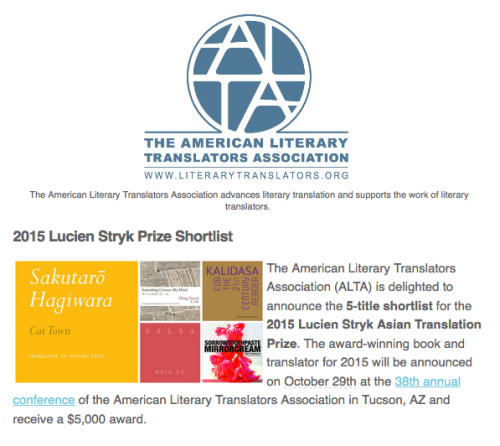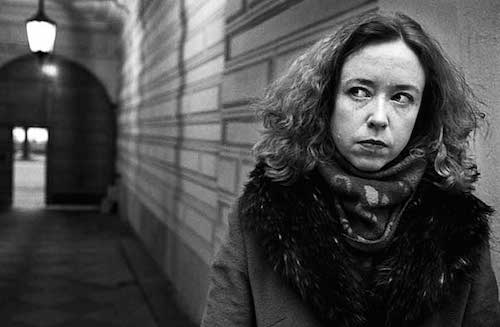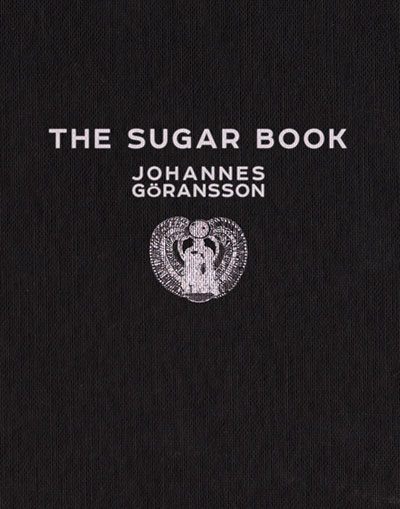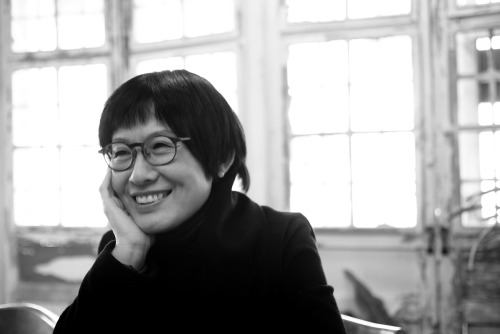Interview in Tupelo Quarterly
“'I want to drown in poetry': A Conversation with Johannes Göransson.” By Kristina Marie Darling.
Interview in Bomb Magazine
"Foreign Objects in Your Mouth: Johannes Göransson Interviewed by Katrine Øgaard Jensen."
Interview in Los Angeles Review of Books
"Transgressive Circulation: An Interview with Johannes Göransson," by M.Buna.
Who’s Afraid of Larry Levis’s Wrecking Crew?
There's an interview in the new issue of APR between Gregory Donovan, Linda Gregerson, Terrance Hayes and Tony Hoagland on the subject matter of Larry Levis. The occasion of the interview is the release of [...]
" The Sugar Book is a book about the intensity of art—and the pervasive anxieties about it, the attempts to restrict it, the rhetoric we use to discuss this discomforting, exhilarating, horrifying, possibly enslaving experience. So it [...]
Sorrowtoothpaste Mirrorcream / Lucien Stryk Award
Kim Hyesoon’s Sorrowtoothpaste Mirrorcream is on the shortlist for the Lucien Stryk Award!
Early reviews of Aase Berg’s Hackers
From Jönköpings Posten, by Björn Kohlström: Aase Berg is not only one of Sweden’s most readable poets, but also one of the most important. Since her first book, Hos Rådjur (1997) she has written hard, [...]
Sugar Book examined at Atticus Review
Laura Carter: "It’s anything but comfortable for us as readers. This sugary land is where life is frail, anorexic, and hardly moving, where the buzzing of flames and water (and perhaps a bit of ?) is ever present. A true horror play, a comedy of failures that can’t seem to find a livable world, which may be closer than the characters imagine."
Kim Hyesoon on the trilingual Renshi & knocking on the world of afterimages
Poetry is another reality captured through absence. The poet announces the reality’s fast-approaching death with silence-filled words, and by doing so, meets her own death inside poetry. The poet is a being that lives because [...]
Fanzine review of The Sugar Book
"If it’s automatic writing, it’s machinic (firing on all eight cylinders). A circular vernacular. Freud’s death drive tied through repetition compulsion plus mnemonics to standard schoolmarm SVO. Haunt Musique. Sends its message like a mail train. Visceral Surrealism. [Johannes Goransson's] end game is an exit wound."
Publishers Weekly reviews The Sugar Book
"Doubling down on his trademark misanthropic imagery amid a pageantry of the unpleasant, Johannes Göransson strolls through a violent Los Angeles in this hybrid of prose and verse…. Prostitution, pubic hair, Orpheus, law, pigs, disease, Francesca Woodman ... and the speaker’s hunger for cocaine and copulation..... Fans of Göransson’s distorted poetics will find this a productive addition to his body of work."
Entropy Mag review of The Sugar Book
"In Johannes Göransson’s poetry, there is no self-congratulation…. Göransson is a controversial poet.... Göransson is certainly of the Left, but his work is as savagely anti-idealist as Burroughs or Guyotat or Ballard. Like those writers, he has no interest in assuring the reader that she or he lives, along with the poet, on the right side of history."




